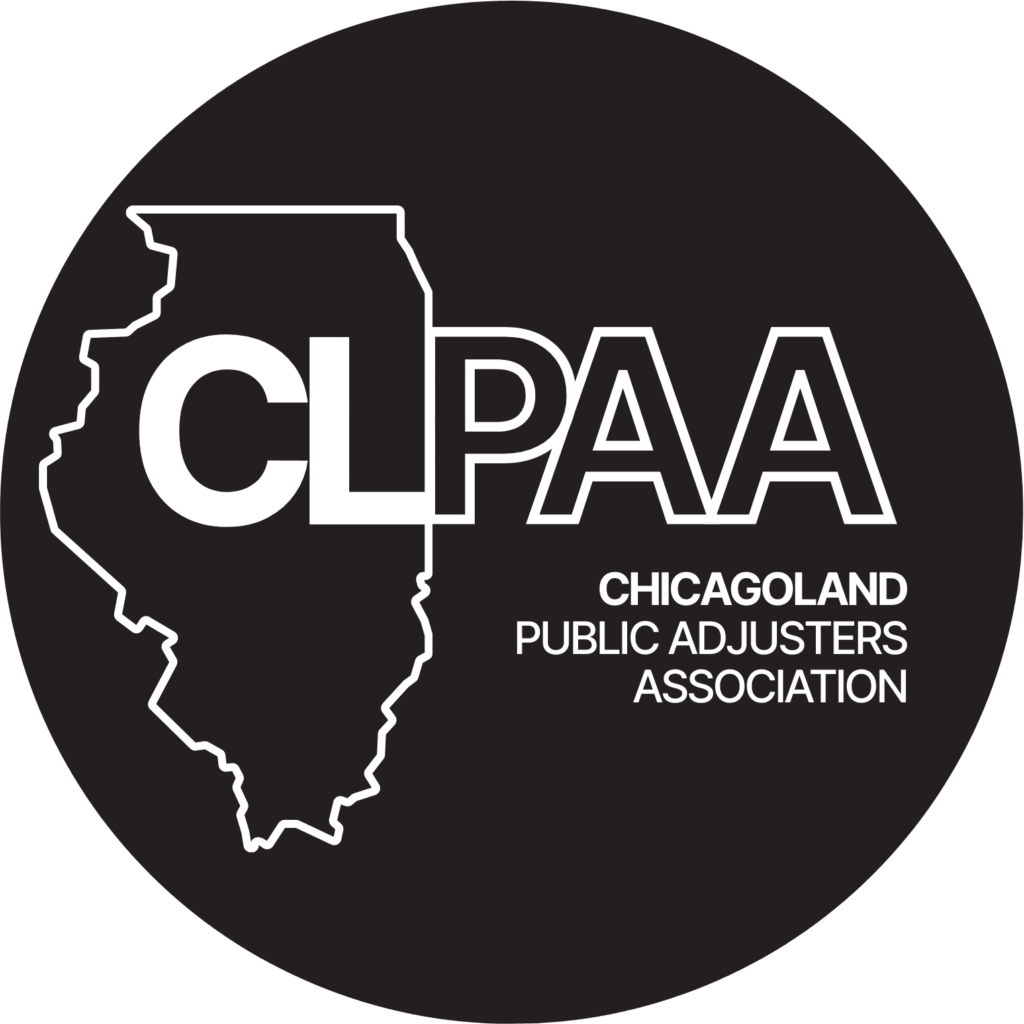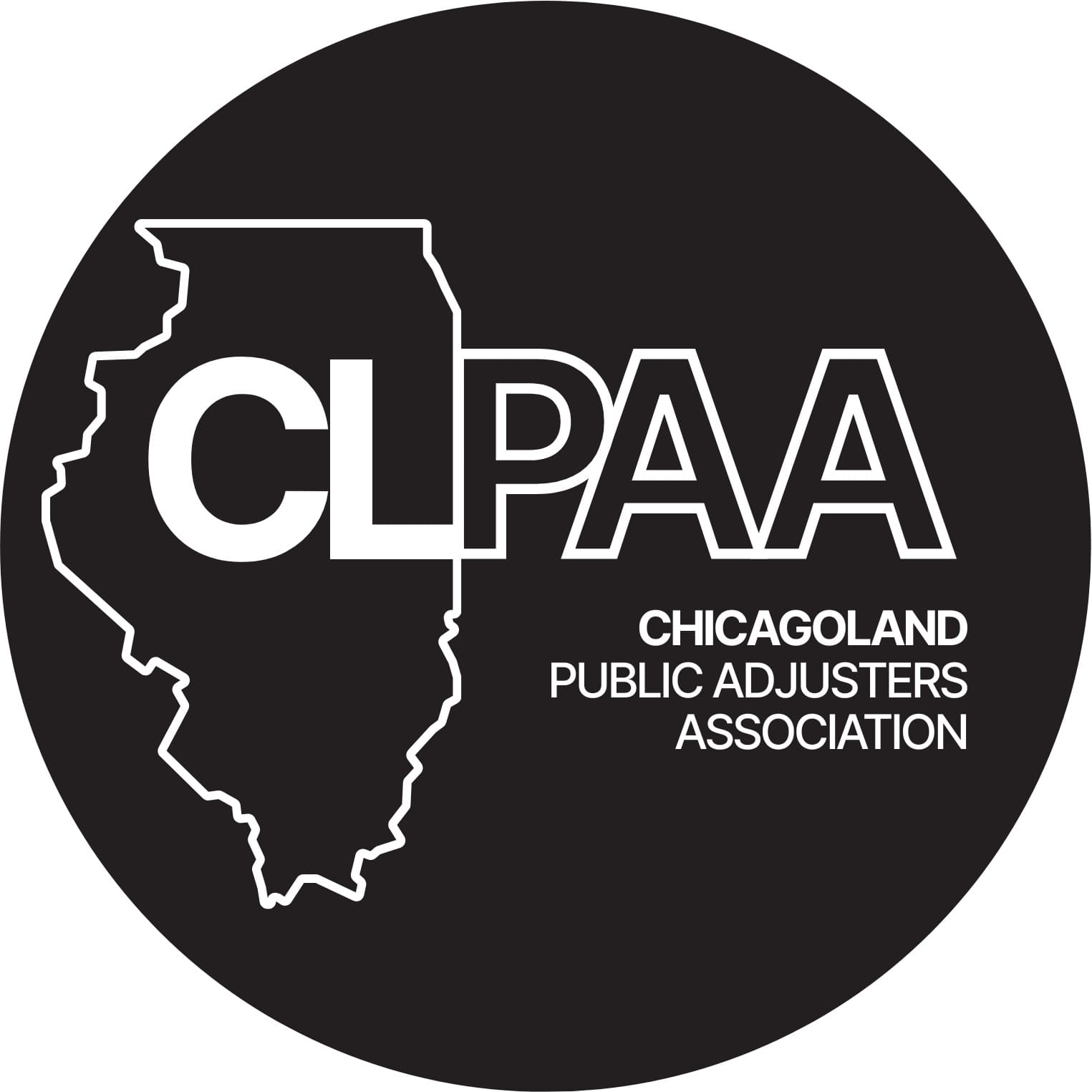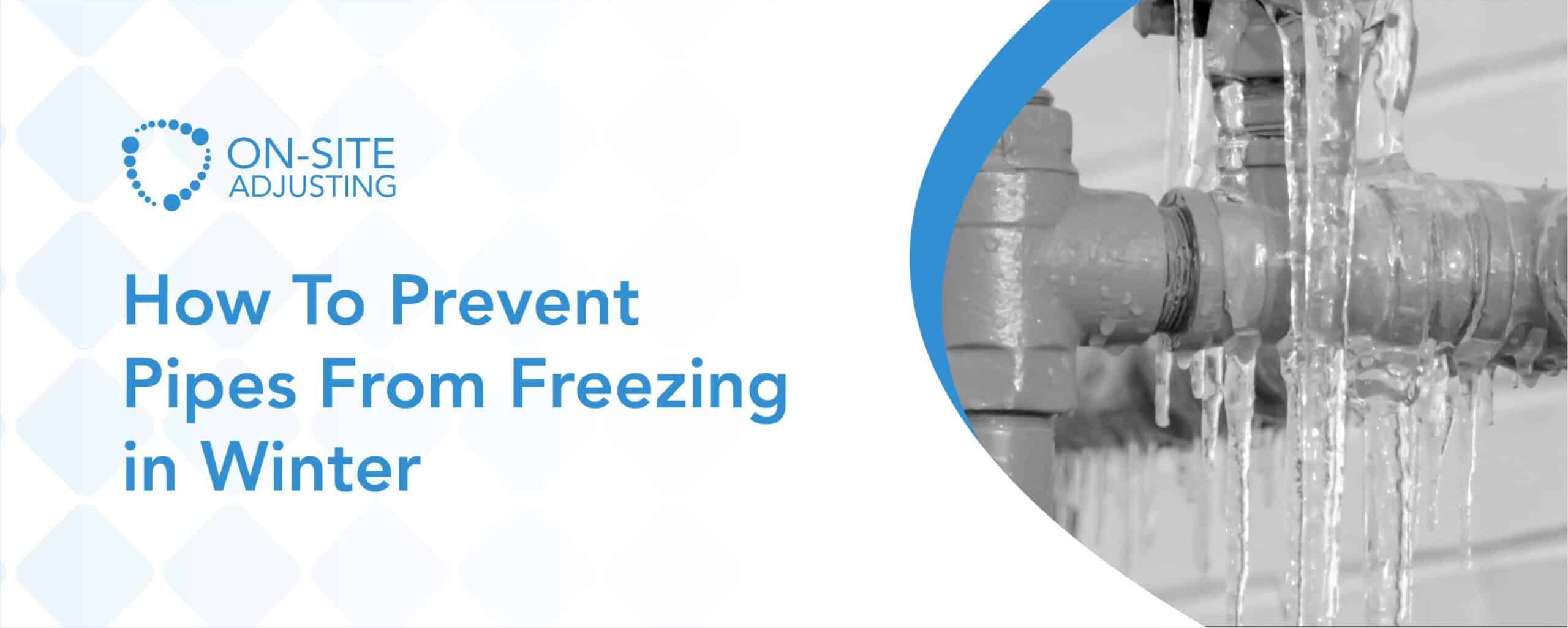
Winter’s chill poses a significant threat to your plumbing system. Frozen pipes can burst, causing severe water damage and costly repairs. This is why over 200,000 homes in the US suffer water damage from frozen pipes that burst each year. You should avoid dealing with water damage claims alone. Instead, consult a public adjuster before filing your claim for ease and clarity. They will handle all aspects of your claim and maximize your settlement.
Fortunately, there are effective strategies to prevent pipes from freezing. In this article, you will find some frozen pipe prevention tips that will protect your plumbing system all winter long. This post also contains special considerations for mobile homes, outdoor pipes, and garages. Additionally, we will discuss how to handle power outages and minimize water damage.
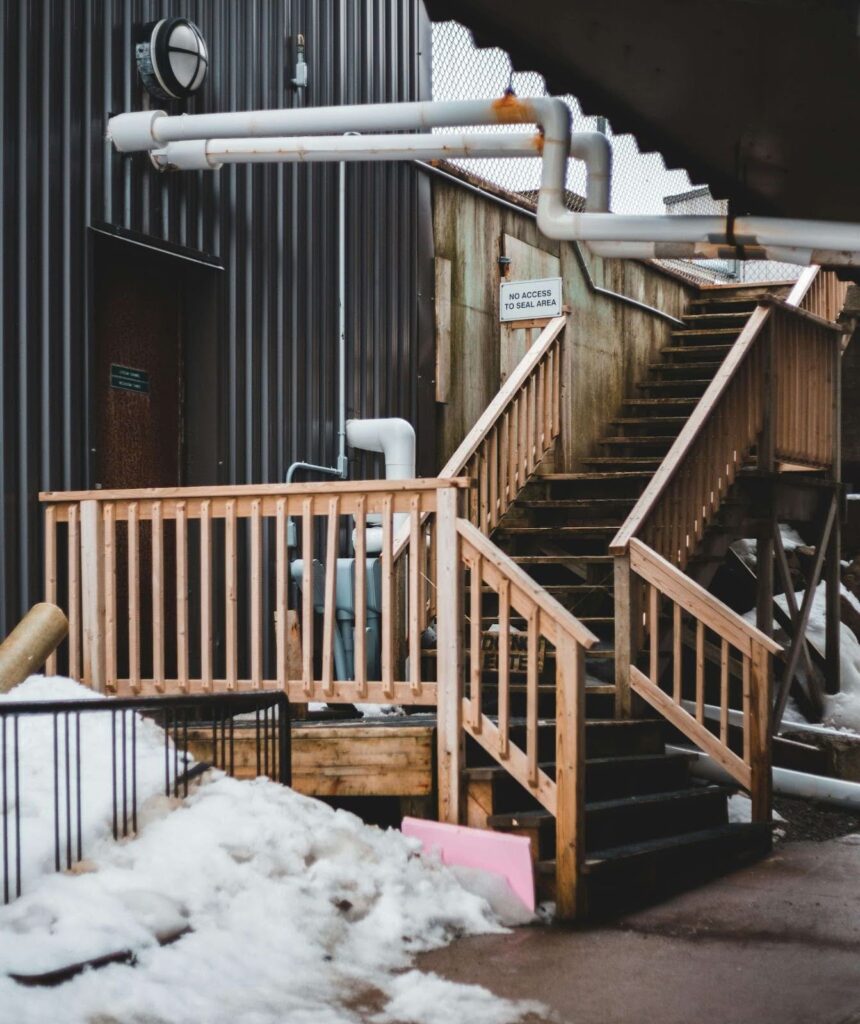
Understanding the Risks of Frozen Pipes
Frozen pipes are a serious risk during winter. When water inside a pipe freezes, it expands and increases pressure. This pressure can cause pipes to burst, leading to water damage and a complicated insurance claims procfess. Pipes located in unheated or poorly insulated areas are particularly vulnerable. For instance, pipes in basements, crawl spaces, and attics are at higher risk. Thus, preventing freezing is crucial to safeguarding your home. However, if your pipes are already frozen, you can still try thawing them to avert damage.
Tips For Preventing Frozen Pipes
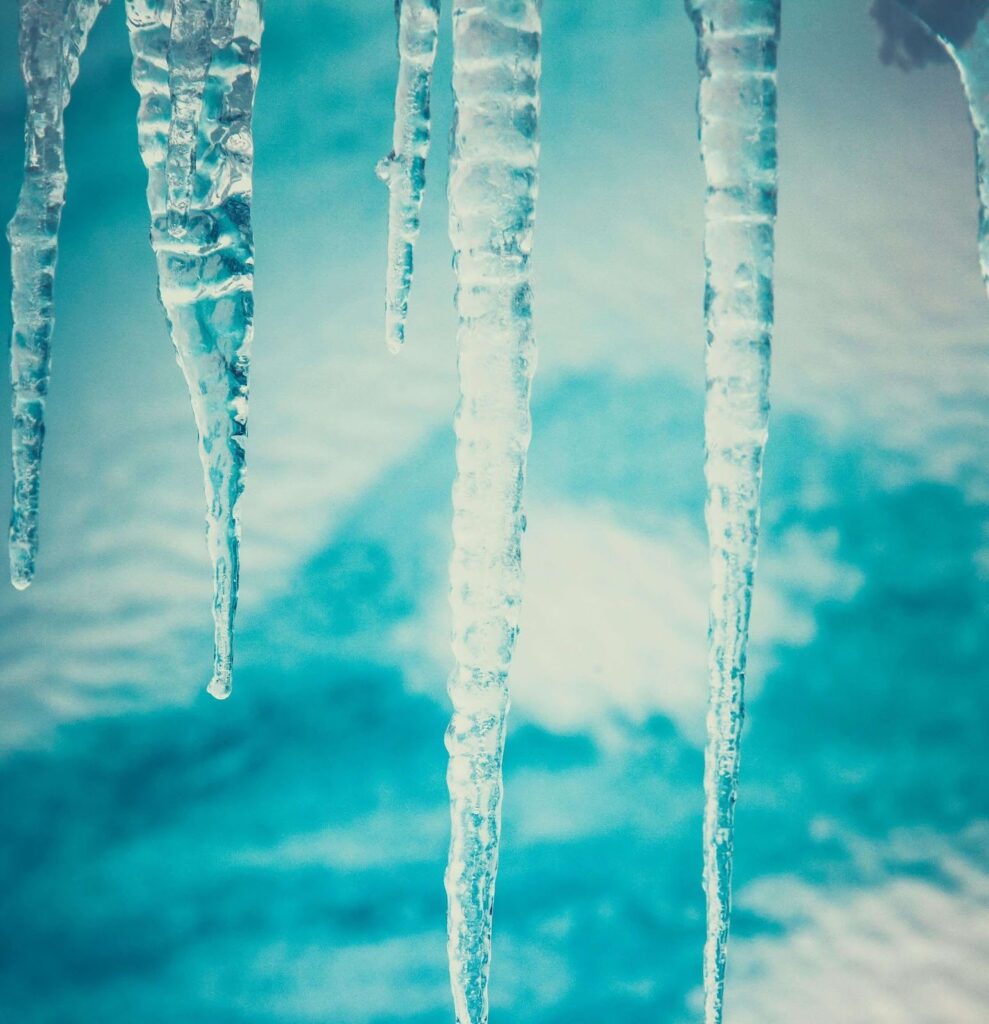
Insulate All Vulnerable Pipes
Insulation is a crucial defense against freezing pipes. Cover exposed pipes with foam pipe insulation or heat tape. This is especially important for pipes in unheated spaces. By wrapping these pipes, you maintain a warmer temperature within them, reducing the risk of freezing.
For mobile homes, where pipes often run along the perimeter or in unheated storage areas, proper insulation is essential. Foam pipe insulation works well in these situations, as it provides a barrier against the cold. Similarly, outdoor pipes are highly susceptible to freezing, so using heat tape designed for outdoor use can offer extra protection. In garages, insulating pipes with foam or heat tape also helps prevent freezing in spaces that may be poorly heated.Maintain a Consistent Indoor Temperature
Keeping your home’s temperature consistent is critical in preventing pipes from freezing. Set your thermostat to at least 55°F (13°C), even if you are away from home. Fluctuating temperatures can increase the risk of freezing, so it is vital to maintain a steady indoor climate. Furthermore, you risk your pipes getting frozen when the temperature dips below 32°F (0°C).
In mobile homes, maintaining a consistent temperature is especially important due to their typically less insulated nature. Ensure that all rooms, including those with plumbing, stay above freezing. A steady temperature helps keep the water in the pipes warm, reducing the risk of frozen pipes.
Consider using a space heater in the garage to keep the temperature above freezing. Ensure the heater is safe for use in enclosed spaces and follow all safety guidelines. A space heater can help maintain a consistent temperature around the pipes. Keeping the garage door closed also helps maintain a warmer temperature inside. If you must open the door, do so for the shortest time possible. This prevents the cold air from rapidly lowering the temperature in the garage.Open Cabinet Doors and Allow Warm Air to Circulate
For pipes under sinks or located on exterior walls, opening cabinet doors allows warm air to circulate around them. This simple action can help maintain the temperature of the pipes and prevent freezing. It’s particularly useful in mobile homes where pipes may be located in cabinets that are in contact with exterior walls.
When the temperature drops significantly, leave the cabinet doors under sinks and in other vulnerable areas open. This practice helps warm the pipes and minimizes the risk of them freezing.Seal Drafts and Gaps
Drafts can significantly lower the temperature around your pipes. Check for drafts around doors, windows, and vents, and seal any gaps or cracks with weatherstripping or caulk. Proper sealing helps to maintain a more consistent indoor temperature and prevents cold air from reaching the pipes.
In mobile homes, where drafts can be more pronounced due to their construction, sealing gaps is especially important. Similarly, ensure you seal all gaps and cracks in your garage. This helps maintain a warmer environment around the pipes.Protect Outdoor Pipes
Outdoor pipes are highly susceptible to freezing, so extra precautions are necessary. Insulate these pipes with foam pipe insulation or heat tape specifically designed for outdoor use. Additionally, disconnect and drain garden hoses, and shut off the water supply to outdoor faucets. Install insulated faucet covers to provide extra protection.
During extremely cold weather, allow outdoor faucets to drip slightly. This continuous flow of water can help prevent the pipes from freezing. For mobile homes, make sure that outdoor pipes are also well-insulated. Furthermore, ensure that you protect any exposed pipes from the cold.Use Backup Heating Sources During Power Outages
Power outages can exacerbate the risk of frozen pipes, particularly if you rely on electric heating. To prevent freezing during power outages, use propane heaters or wood stoves, if available. Ensure that you use these heaters safely and follow all manufacturer instructions. Backup heating helps keep the temperature from dropping too low and prevents pipes from freezing.
For prolonged power outages, consider applying heat tape to exposed pipes. Many heat tapes are self-regulating and activate only when temperatures fall below a certain point. This means that they offer protection even without power. Also, cover them with blankets or towels for added insulation. Make sure the covers are secure and completely envelop the pipes to maximize their effectiveness.
Let faucets drip slightly to keep water moving. Moving water is less likely to freeze than standing water. Even a small drip can help keep the water flowing and reduce the risk of freezing. If you expect the power outage to last for days, consider shutting off the main water supply to your home. This prevents water from entering the pipes and eliminates the risk of burst pipes due to freezing. Open faucets to drain any remaining water from the pipes.Regularly Check and Repair Leaks
Leaks can worsen freezing issues by allowing water to pool and freeze. Regularly inspect your plumbing system for any signs of leaks or damage. Address any issues promptly to prevent them from causing further problems during the winter months.
How to Minimize Water Damage from Frozen Pipes
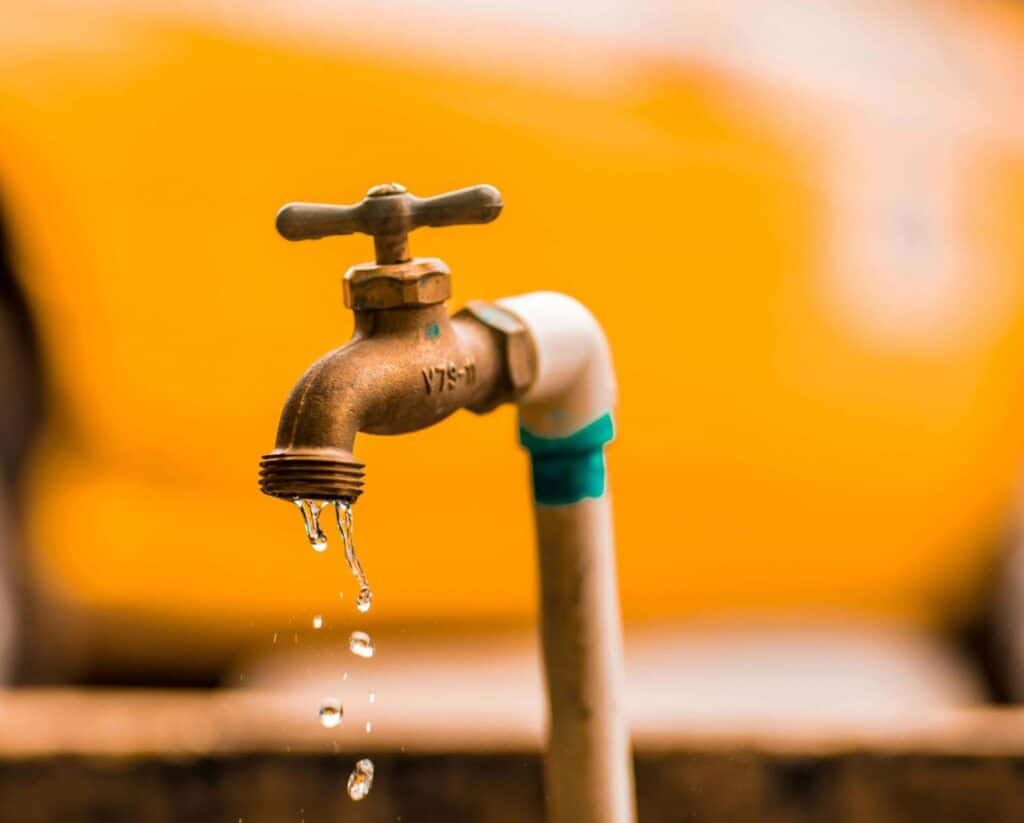
Install Water Leak Detectors
Installing water leak detectors can help you catch leaks or bursts early. These detectors can alert you via phone or trigger alarms when they detect water. Early detection allows for a prompt response and minimizes potential damage.Repair Leaks Promptly
If you discover a leak or burst pipe, act quickly to address the issue. Turn off the main water supply and contact a plumber to repair the damage. Clean up any standing water and dry affected areas to prevent mold growth and further damage.Insulate and Seal Pipes Properly
Proper insulation and sealing are crucial to prevent freezing and subsequent damage. Ensure all vulnerable pipes are adequately insulated and seal any gaps or cracks that could allow cold air to reach the pipes. This helps protect your home from potential water damage.Maintain Proper Drainage
Ensure your property has effective drainage to direct water away from your home. Proper drainage prevents water from accumulating around the foundation. This reduces the risk of water damage. Regularly clean gutters and downspouts to maintain effective drainage.Install a Backup Sump Pump
If your home has a sump pump, consider installing a backup sump pump powered by a battery or generator. This backup system can help prevent basement flooding during power outages or system failures. It provides added protection against water damage in emergencies.
Conclusion
Preventing pipes from freezing in winter involves a combination of insulation, temperature management, and proactive strategies. By following these general tips, you can effectively reduce the risk of frozen pipes. Additionally, preparing for power outages and regularly checking for leaks will further safeguard your plumbing system. With careful planning and attention, you can protect your home’s plumbing and avoid the inconvenience of frozen pipes this winter.
Frozen pipes often come with the risk of water damage insurance claims. A public adjuster can take that weight off your shoulders. At On-Site Adjusting, we have professionals who will fetch you a settlement that keeps you warm all winter long. Maximize your claim today!

